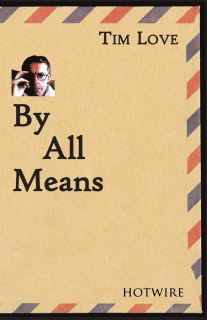There are several parallels between the milieu of literature and those of specialist academic subjects.
- Scale - poetry print-runs might be in the low hundreds. Some academic publications would be happy to reach even those figures.
- Isolation - they both have their cliques and conferences (or festivals). They're both misunderstood by the public.
- Journals - academic paper periodicals were becoming very expensive - several hundreds of pounds a year - and were failing to perform their broadcasting function. Nowadays they're available online, but still at a cost. The periodicals still have to fund publication, archiving, and peer-reviewing. One option is Pay to Publish - to have free access to the publication, but making authors (or submitters) pay. It means a change in grant applications, but dissemination of ideas will improve (poor readers not disadvantaged) without quality control being compromised.
Some literature magazines work a little like this - they're not free, but submission is at least in part by competition, subsidising printing costs (see Glimmer Train, short Fiction, etc) - Peer Review - For specialistic publications, reviewers are likely to be friends or rivals of authors. Objectivity is at risk. Poetry's not so different. Anonymity doesn't always help.
- Reception - Whereas in the past reaction was slow and localised, discussion can now be global in hours, thanks to Twitter and blogs.
In academia, the importance of papers is measured by their citation impact - where (and how many times) they're cited. Funding is affected by the results. People are now trying to extend this to cope with online mentions. Poetry could have the same mechanism were there the funding to set it up. In the States I believe something like this exists, with creative writing tutors getting points for poetry or story publication in approved magazines.
I'm surprised how few poetry reviews are online (outside of Amazon). When I did a write-up of Don Paterson's Landing Light I found several reviews. For Carol Rumens' Blind spots I had trouble finding any, which makes comparisons difficult. - Money - The value of publication is that it gets you a job which can earn money (workshop tutor, lecturer).


 Now, when computers in the form of Kindles and iPads are threatening to take over the publishing world, I've jumped ship and have a paper-based pamphlet out (with
Now, when computers in the form of Kindles and iPads are threatening to take over the publishing world, I've jumped ship and have a paper-based pamphlet out (with  "Moving Parts" (ISBN 978-1-905939-59-6) is out now, on sale at the
"Moving Parts" (ISBN 978-1-905939-59-6) is out now, on sale at the  My story collection "By All Means" (ISBN 978-0-9570984-9-7), published by Nine Arches Press, is on sale from
My story collection "By All Means" (ISBN 978-0-9570984-9-7), published by Nine Arches Press, is on sale from  My poetry pamphlet "Moving Parts" (ISBN 978-1-905939-59-6) is out now, on sale at the
My poetry pamphlet "Moving Parts" (ISBN 978-1-905939-59-6) is out now, on sale at the 